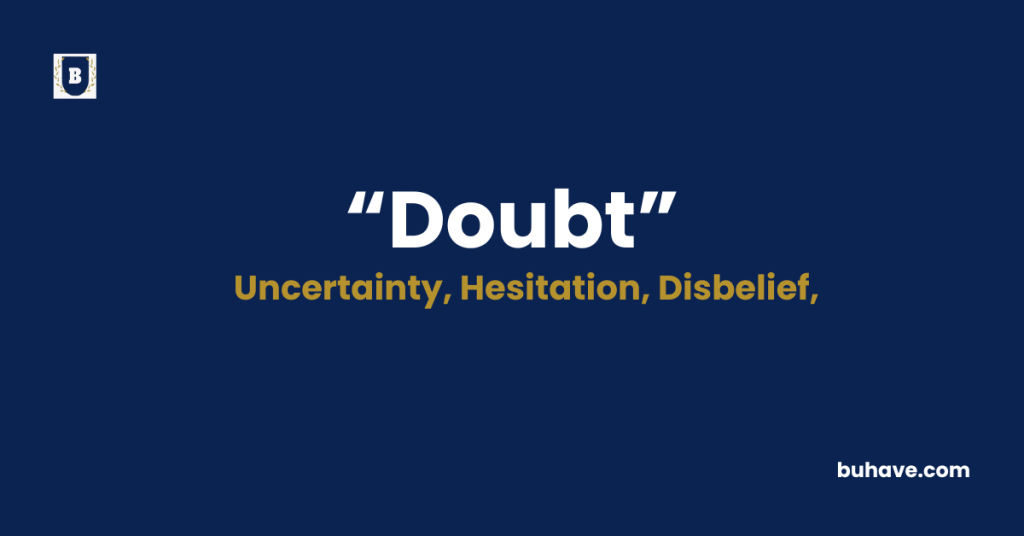The word ‘Doubt’ (Noun) refers to a feeling of uncertainty or lack of conviction. In this guide, you’ll learn the full definition, synonyms, antonyms, etymology, and real-life examples of how to use ‘Doubt’ correctly in sentences.
Doubt Explained in Depth
A complete and detailed guide to the word ‘Doubt’ including meaning, definition, examples, etymology, synonyms, and antonyms.
Meanings of Doubt
Doubt means a state of being unsure or unconvinced about something. It can involve questioning the truth, reality, or reliability of a fact, belief, person, or decision. Doubt can affect confidence, delay actions, and spark deeper reflection or inquiry.
Definition
Doubt is both a noun and a verb. As a noun, it refers to a feeling of uncertainty or lack of belief in someone or something. As a verb, it means to question, hesitate, or feel unsure about the truth or reliability of a person, statement, or situation.
Etymology
The word “doubt” comes from the Latin dubitare, meaning “to hesitate or waver,” which is rooted in dubius (uncertain). It entered English through Old French douter in the Middle Ages and has retained its meaning related to uncertainty and hesitation.
Example Sentences
- She expressed doubt about the accuracy of the report.
- I don’t doubt your intentions, but I question the timing.
- His voice was filled with doubt as he answered the question.
Doubt Synonyms
- Uncertainty
- Distrust
- Skepticism
- Suspicion
- Hesitation
- Mistrust
- Disbelief
- Confusion
- Questioning
- Apprehension
Doubt Antonyms
- Confidence
- Trust
- Certainty
- Belief
- Conviction
- Assurance
- Faith
- Reliance
- Clarity
- Acceptance
FAQs about Doubt
Here are some frequently asked questions (FAQs) about the word “Doubt”
- What does “doubt” actually mean?
“Doubt” refers to a feeling of uncertainty or a lack of trust in something’s truth, reliability, or success. - Is doubt always negative?
Not necessarily. While doubt can hinder decisions, it can also lead to careful thinking, investigation, and personal growth. - Can doubt be healthy?
Yes. Healthy doubt encourages critical thinking and helps prevent blind acceptance of ideas or claims. - What causes doubt?
Doubt can arise from lack of evidence, conflicting opinions, past experiences, or low self-confidence. - How can I manage self-doubt?
To manage self-doubt, build confidence through practice, seek support, focus on achievements, and challenge negative thoughts.

















